Get Stoked for
Jack Johnson’s Doubleheader
Surfer-Songwriter Returns for
Two Nights at the Santa Barbara Bowl
By Matt Kettmann | September 29, 2022
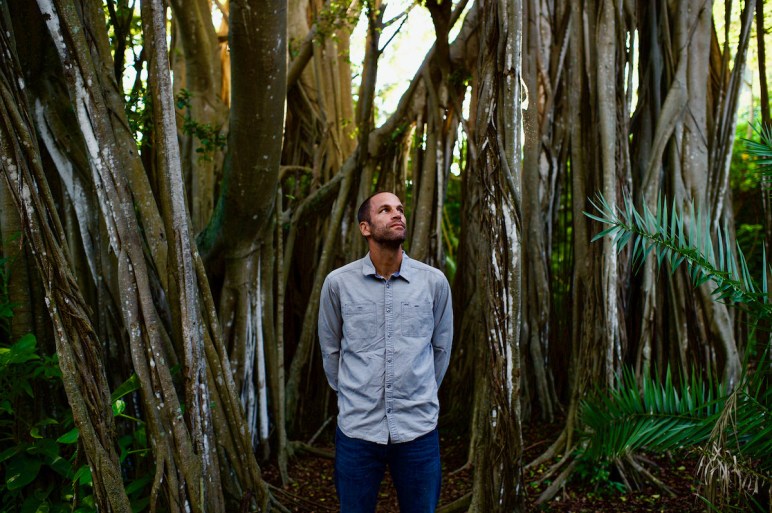
Read all of the stories in our “Fall’s Cultural Harvest” cover here.
Even if he spends most of his time in Hawai‘i these days, Santa Barbara still considers Jack Johnson our own surfing-songwriting son. He studied film at UCSB, played Del Playa keggers in Isla Vista, and owns a home near the Montecito shoreline, where he lived when the town was more sleepy than chichi. If you’re a UCSB grad of a certain era, he may even be your friend, or a friend of a friend, or at least an up-close anecdote that you use to impress otherwise never-been-that-close fans of his mellow, campfire-perfect music.
Like so many friends, it’s been a while since we’ve all connected, thanks to COVID. But Jack’s back, preparing to play two nights at the Santa Barbara Bowl next week, October 4 and 5, his first time on our largest stage since 2018.
The doubleheader — featuring opening sets by his Hawaiian friends Ron Artis II and Thunderstorm Artis — comes on the heels of his latest album, Meet the Moonlight, which was produced by Blake Mills and came out in June. His ninth studio album but the first in five years, Moonlight doesn’t sound a whole lot different from his past works, at least to my ears. But the joy in Johnson is becoming familiar with the lyrics and melodies over time, as they slowly worm into your consciousness and pull at your conscience.
I’m pretty certain I watched his band Soil in my I.V. daze, but I’ve officially been a fan since his first album, Brushfire Fairytales, when we met at his rented house to write my first of what would be many articles about this emergent legend. Backstage hanging at an early Coachella, connecting over strawberries at Fairview Garden, judging a Halloween Gong Show at Restaurant Roy (him a gorilla, me The Dude), and watching my young son dance onstage at the Bowl next to Johnson are just a few of the anecdotes I’ve collected over the years.
We texted a bit during the depths of the pandemic on the night he played one of those Together at Home concerts on television, and again more recently, when our mutual buddy Chris Potter — who was Johnson’s freshman-year roommate at UCSB — came down with crazy cancer. (Johnson had a ticket to come to the Friendship Paddle for Potter until sick kids kept him at home.)
Last week was the first real interview we’ve done in a long time, and it was great to hear him sound as confident, comfortable, and contemplative as ever. We talked about stoking out a longtime fan in Boulder, how sweet it was to tour with reggae legends Ziggy Marley and Santa Davis, and the different ways that he writes his songs.
They can come quick — his Goleta-based keyboardist Zach Gill might create a loop, and Johnson can lay down lyrics pulled in part from conversations they overheard from hotel balconies on break days. Others are more meditative, as in the case of Moonlight’s first track, “Open Mind,” whose melodies and lines were circling around his head for a long time before they landed in a song.
“By the time I put it out to the world, it’s not like I’m trying to teach anyone a lesson or suggest you do something different,” he told me. “I found a way to express something that makes sense to me. When the songs work, it’s because you put your finger on something that someone thought about but hasn’t been able to express. When you’re lucky, it touches on something that’s in the social conditions of our time.”
What follows is a condensed and streamlined version of our conversation.
What was COVID like for you in Hawai‘i? If I rewind and go back through the mindset of the whole thing, there were stressful times, like anywhere else. Hawai‘i had its own thing going on. So much of the food is shipped in; people were worried about the food getting here.
The beautiful outcome was how much the community came around to supporting local farmers and figured out ways to get more locally grown food. I’ve talked to farmer friends who say that, post-pandemic, it’s stayed that way since, with more farmers markets and CSA boxes. That was one good thing.
We had a lot of family time. Our teenagers were forced to chill out with us during certain periods. We played a lot of board games.
I started writing a lot of music, just because I was around the house a lot more. I ended up putting out this new record.

Did you see the news about your friend Yvon Chouinard giving Patagonia away to support environmental causes? I love that Yvon is forward-thinking enough to not just look for the best option, but to invent a new way to go about things. Hopefully other people will be able to use that blueprint. He’s done that a lot through his whole life. We went on a surf trip together one time. It’s funny to call him a friend. He’s more of a hero.
Has your career made a meaningful impact on climate change? It’s hard to know if what you’ve done has had a positive or negative outcome when you do all the math. We’re touring, and there’s no way around having an environmental footprint when you’re flying to another continent and all the people are driving to your shows. All the byproducts add up.

We’ve always tried to do our best to mitigate the negative impacts, like running trucks on biodiesel and giving fans the option to do carbon offsets. That, we can calculate.
But it’s not just making the negatives as few as possible. How do we do positives? It’s all about the nonprofit groups we work with in every town.
It’s not just the money we raise, but these nonprofits get a lot of new young members. People invest in them and stay involved afterward and keep coming to events. I’ve talked to people who started volunteering with the groups because of the shows, and now they’re on the staff working with the groups years later. It’s nice to know when you leave a town that you didn’t just offset the carbon footprint but that the show has a reverberating positive impact on the community.
With so many popular songs but also a new album, how do you approach the set list? That’s an interesting
challenge. I enjoy playing the ones that I can tell are moving the people who came to the show that night.
When we play “Better Together” most nights to close, it’s a nice way to end the night. That song is always gonna have a certain impact with most people knowing the words. There’s a certain energy you arrive at, which is a beautiful part of the live experience.
The new songs, even if a few people love them, not everyone is going to know them. You have to get your mind right for that and not expect a similar reaction, but it’s still worth trying.
I would get every Fugazi record that came out, and if I went to a show and they didn’t play the new ones? [He’d be pissed.] So I think about the people who want to hear the new ones.
And then there’s deep cuts on all the old records, and there might be one or two people [for whom] that song means everything to them. If we get a request, even a random one early in the day, we’ll try to honor it.
Do you like doing doubleheaders? Earlier in my career, the double nights were scary to me. If one went really good, then you have to do another one. And how many people are coming to both shows?
Now we really enjoy the double nights. It gives us a chance to play a bunch of older songs. We’ll still play some of the same songs both nights, but we mix it up and try things that we didn’t do the night before.
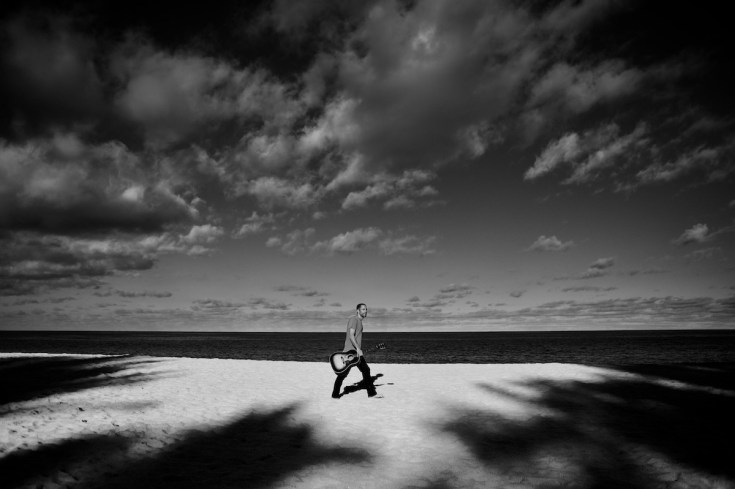
You must be playing a lot of the same songs over and over. Do you still find it a fulfilling life to be playing music? I really do love it. Balance is key. I wouldn’t be able to tour every summer. There are some people who do, and music for them is probably similar to what surfing is in my life. It’s what they want to do all the time.
What makes it really so lucky is that the guys in the band are my friends. When we’re not on tour, we’re still making each other laugh. Zach [Gill] in particular — we’re soul buddies, born on the same day. It’s great to be on stage together, whether failing or succeeding.
There’s a song on the new record called “Costume Party,” where I play some beer bottles. Some nights, I just fail. I can’t quite hit the bottle right. It looks so dumb. I’ll look at Zach, and your friend is watching you fail in front of 20,000 people, and then I play worse because I’m laughing at that.
Whether it’s one of those moments when things are going as bad as they can go, or when Zach is doing a solo on the Wurly and he has 20,000 people with their hands overhead, and that’s your best bud. That keeps it exciting and fun.
I’m lucky to tour and have my family with me and the guys on stage. You’re always with your loved ones that way.
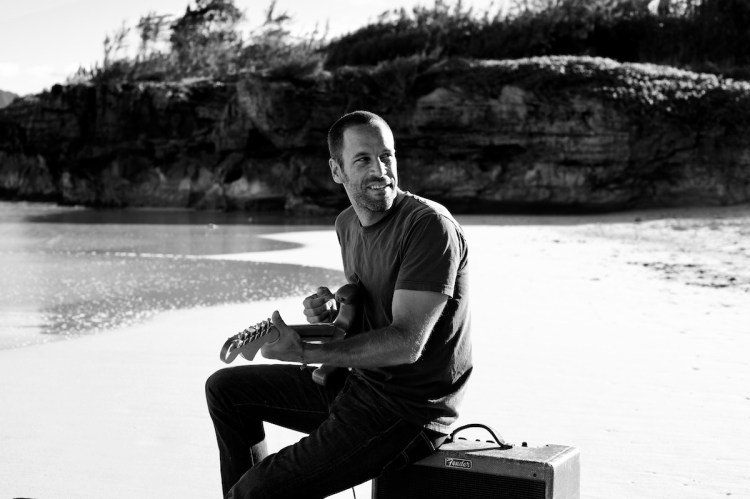

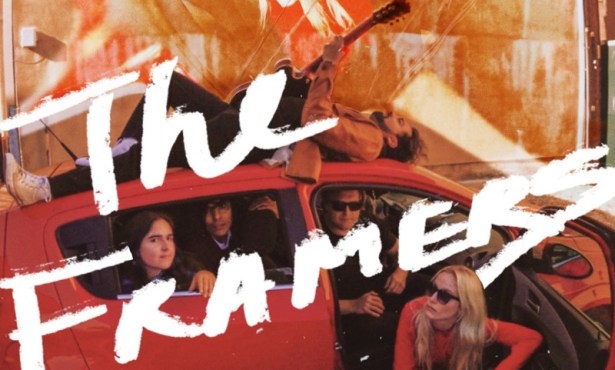
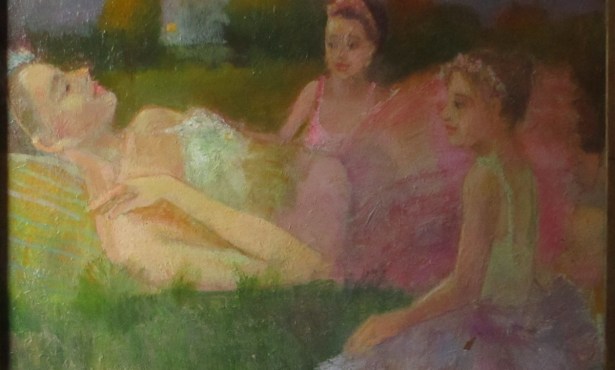
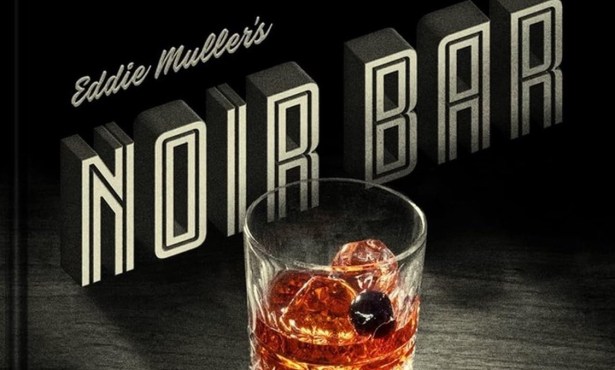
You must be logged in to post a comment.